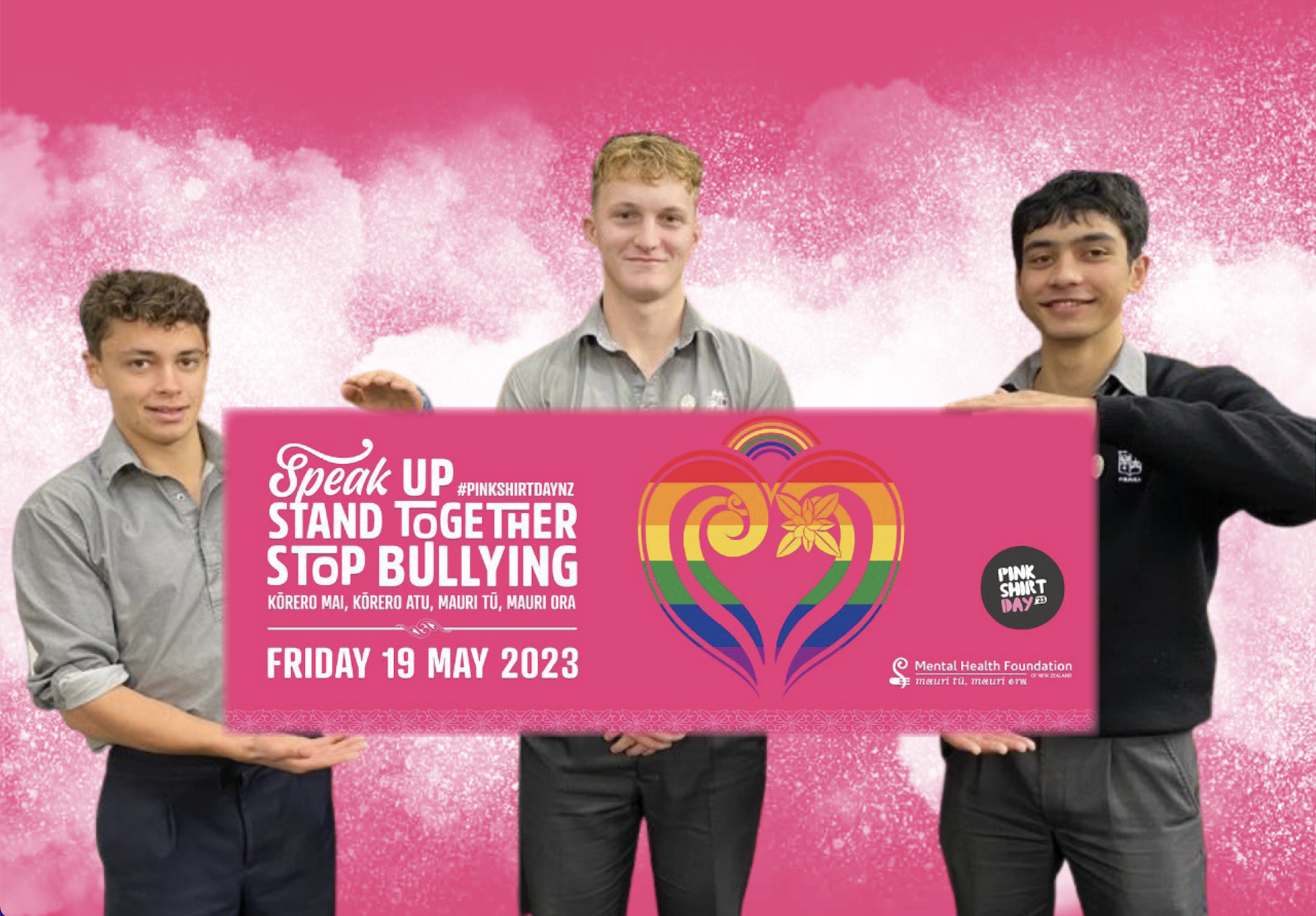Today is Pink Shirt Day for 2023, a day to spread aroha, celebrate diversity and work towards ending bullying.
New Zealand, unfortunately, has higher rates of bullying than many of the countries we like to compare ourselves with. The Mental Health Foundation reports that 32% of New Zealand students report being bullied a few times a month, higher than the 23% average across OECD countries. Both of these statistics are appalling and speak to the imperative for change around the world.
Pink Shirt Day began in Canada in 2007 when two students made a stand against homophobic bullying that one of their peers was enduring. The Mental Health Foundation have supported Pink Shirt Day in New Zealand since 2012: Kōrero Mai, Kōrero Atu, Mauri Tū, Mauri Ora – Speak Up, Stand Together, Stop Bullying.
Whether it is physical, verbal, or social (relational) bullying, four widely-accepted factors can be used to identify it:
· Bullying is deliberate - harming another person intentionally
· Bullying involves a misuse of power in a relationship
· Bullying is usually not a one-off - it is repeated, or has the potential to be repeated over time
· Bullying involves behaviour that can cause harm - it is not a normal part of growing up.
Bullying can happen anywhere, in person or online (cyberbullying), at any time, and can be verbal, physical or social (relational). It can be obvious or hidden.
People who bully use their power — such as physical strength, knowing something embarrassing, or popularity — to control or harm others. Bullying is when one student (or a group of students) keeps picking on another student again and again to make them feel bad. They say or do things to upset them, make fun of them, stop them from joining in, or keep hitting or punching them.
Many of the incidents of bullying we deal with begin as mates within a group giving each other a hard time – some banter. This escalates and continues over a period of time until it is no longer a joke and one of, or sometimes both, of the young men involved are really affected by it.
From our young men we frequently hear about the brotherhood at Palmy Boys’. We would hope that our young men do look out for each other as brothers. This would mean not being a bully and not turning a blind eye to bullying behaviour.
It means choosing to move from being a bystander – a person who sees or knows a bullying incident is occurring to someone else – to being an UPSTANDER – a person who uses words or actions that can help someone who is being bullied.
The Mental Health Foundation have identified five acts that Upstanders can take to make a difference:
Awhi/support the person experiencing bullying
• Stand beside them and let them know you’ve got their back. Encourage them to ask a teacher for help or go with them to get help.
• Let them know they’re not alone!
Distract Interrupt the bullying in some way
• Ask the person experiencing bullying if they want to go for a walk or do something else.
• Help them to leave the situation they’re in.
Call it!
• If you feel safe to, let the person/people doing the bullying know what they’re doing isn’t okay.
• Use your words to show aroha and kindness to those involved.
• Don’t stand by and watch. It can be hard to speak up in the moment, but it can make a huge difference.
Leave and act
If you don’t feel safe to step in while the bullying is happening:
• Move away from the situation.
• Later, let the person experiencing the bullying know you saw and ask what might help.
• You might want to have a quiet word with the person doing the bullying.
Get some other help
• Support the person being bullied to get help from others – whānau, teacher, a trusted adult or a helpline and then act on their advice
In New Zealand minority groups are overrepresented as the victims of bullying, especially members of the rainbow community. Young people who are bullied are more likely to experience mental health issues such as depression, anxiety and suicidal thoughts.
There is a collective responsibility for us to act together to stop bullying. Respect everyone in our community. Act in ways that align with your values. Behave in a manner that you are proud of. Be an UPSTANDER.
Kōrero Mai, Kōrero Atu, Mauri Tū, Mauri Ora – Speak Up, Stand Together, Stop Bullying.
